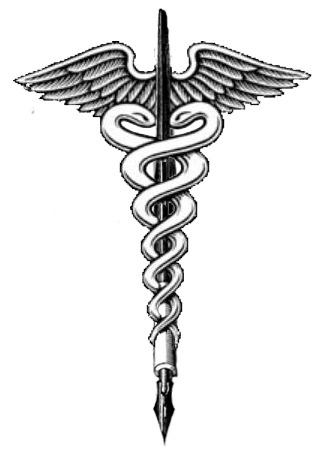|
Dissecting Anatomy — by Joshua Niska
I stood alone in a room full of dead bodies last week. Not being able to take the trip back home to Arizona for Thanksgiving, my wife and I spent the holiday with a group of students from the medical school in what turned out to be one of the best Thanksgivings I can remember. After late nights falling asleep on top of my notes and waking up to find I needed to be in gross lab in an hour, early mornings looking into the pelvis and thinking “they expect us to find that?”, and weeks of way too much coffee, we had finished anatomy. Just being with friends and not having the weight of studying on my shoulders felt wonderful. Sitting around the Thanksgiving table, I missed being with my family but realized we had become like family in the short time since the semester had started. We packed in as many rounds of food as humanly (and humanely) possible, played some games, and called it a night with just enough time to drive home before a food coma put me down for the count. Then, on Black Friday, there I was in the anatomy lab—alone.
Since the beginning of the course, I had not had the chance to stop, to catch my breath. I had thought about the experience of anatomy but wanted to feel it. Alone in the anatomy laboratory, leaning against the cold steel of the sink with the stench of formaldehyde permeating every breath, I finally had a chance to feel. I put down the dissection kit I had stopped by to pick up and sat on the stool next to my body.
I had stopped for a moment at other times to think about the experience, but each time I stopped, I felt compelled to get back to work; I had the entire human body to learn in eight short weeks. Then, without anything on the horizon at least until Monday, I allowed my mind to wander. Everything I felt throughout the course hit me. From the moment I first saw his hands to the day I looked into his eyes, I had grown to know this man intimately. At the same time, I knew nothing about him. Why had he chosen to donate his body? How old was he? Where did he work? Did he have any children? What was his name?
I thought it odd that I was alone in that room. Perhaps even more oddly, for the past two months, the entire floor had been full of students, armed with scalpels, scissors, and even hand-saws, examining every inch of the people who had donated their bodies for our education. As the course drew to its close, a classmate jokingly remarked to me, “If they got us to do this, then what couldn’t they get us to do?” Another said: “I don’t think I’ll ever be grossed out by anything again.”
At the beginning of medical school, none of us could have imagined having urine spurt onto our hands when we unwittingly punctured a full bladder, using rib cutters to open up the chest, or sawing a head in half to see the nasal cavity, pharynx, and larynx. Now, looking back, I realize an incredible transformation has occurred. Experiences I once would have considered outlandish now carry a sense of normalcy. Without the generous gift of each donor, I would not have gained such a first-hand appreciation for the beauty and intricacy of the human body. In the silent moment I spent in the anatomy lab, I said a short prayer of gratitude for the incredible opportunity I had been given.
For me, brief moments in which I am free to reflect upon my experiences are as important as the intense periods of learning we undergo in medical school. Just as interviewing patients each week has become a normal experience over the past several months, learning the details of the human body through dissection became normal. I suspect this transformation of experiences from surreal to standard will be repeated many times over the next four years as well as throughout my medical career. I only hope that as I go through each new experience, I will have those brief reprieves, if even only a solitary moment in an anatomy lab, to recognize the impact the experiences have had upon me and to reflect upon how I have changed.
|
